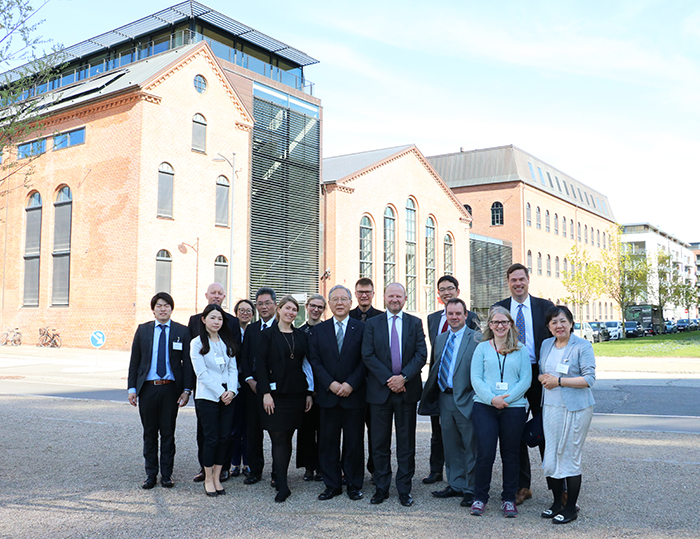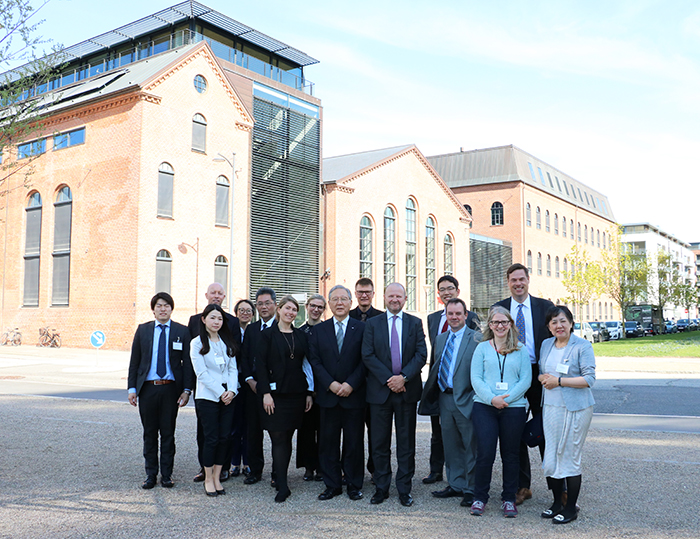Danish-Japanese collaboration on better use of health data

The Danish Medicines Agency met today with leading representatives from the Japanese Ministry of Health, Labour and Welfare, and the Japanese Pharmaceuticals and Medical Devices Agency at the Danish Medicines Agency in Copenhagen. The purpose of the meeting was to exchange knowledge and experience regarding regulatory work in the pharmaceutical area, and to begin a broader collaboration between the agencies. The primary focus of the planned collaboration will be on how to use new technologies for the collection and analysis of health-related data, and how that data can be used – both to enhance the development and design of new innovative medicines, and to strengthen monitoring of their safety and efficacy. The Japanese authorities have extensive knowledge of and experience in collecting and using patient data that can document how medicines work when used to treat patients in clinical practice.
In general, there is already a strong focus on how to improve the existing methods for data collection and analysis both for the authorisation and monitoring of safety after medicines have been put on the market. The development of new technologies and new types of data, so-called Real World Data, that can be used for this purpose represent potential for invention and innovation in this area.
"As new pharmaceutical treatments become more and more advanced, new requirements are imposed on the authorities' procedures for authorising, monitoring and handling any risks of these medicines. The use of Real World Data is becoming increasingly important in this matter, which is something we have paid attention to at the Danish Medicines Agency in recent years. Real World Data can give us greater knowledge about how well medicines work after marketing, and how they are used in large patient populations. In Denmark, registry data is already one of our strengths, and with the new technologies, we can use these data in completely new ways that will not only benefit patients but society as a whole", says Thomas Senderovitz.
Registry studies using Real World Data can be used, among other things, to discover side effects that are missed by the controlled clinical trials, which are the basis for authorizing medicines (these are often too small to catch all possible side effects). Similarly, controlled clinical trials are typically unable to document a medicine’s long-term effects, in contrast to using data taken from a variety of registries.
”These new methods of using data give us possibilities of making complex analyses of many different data collectively and using the analysis results to authorise and monitor medicines in a more sophisticated way – something that will benefit patients. I am therefore delighted about the Confidential Arrangements we have signed with the Japanese drug regulatory authorities today", finishes Thomas Senderovitz.
